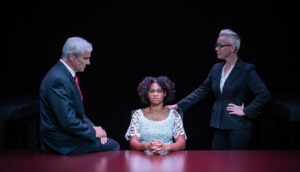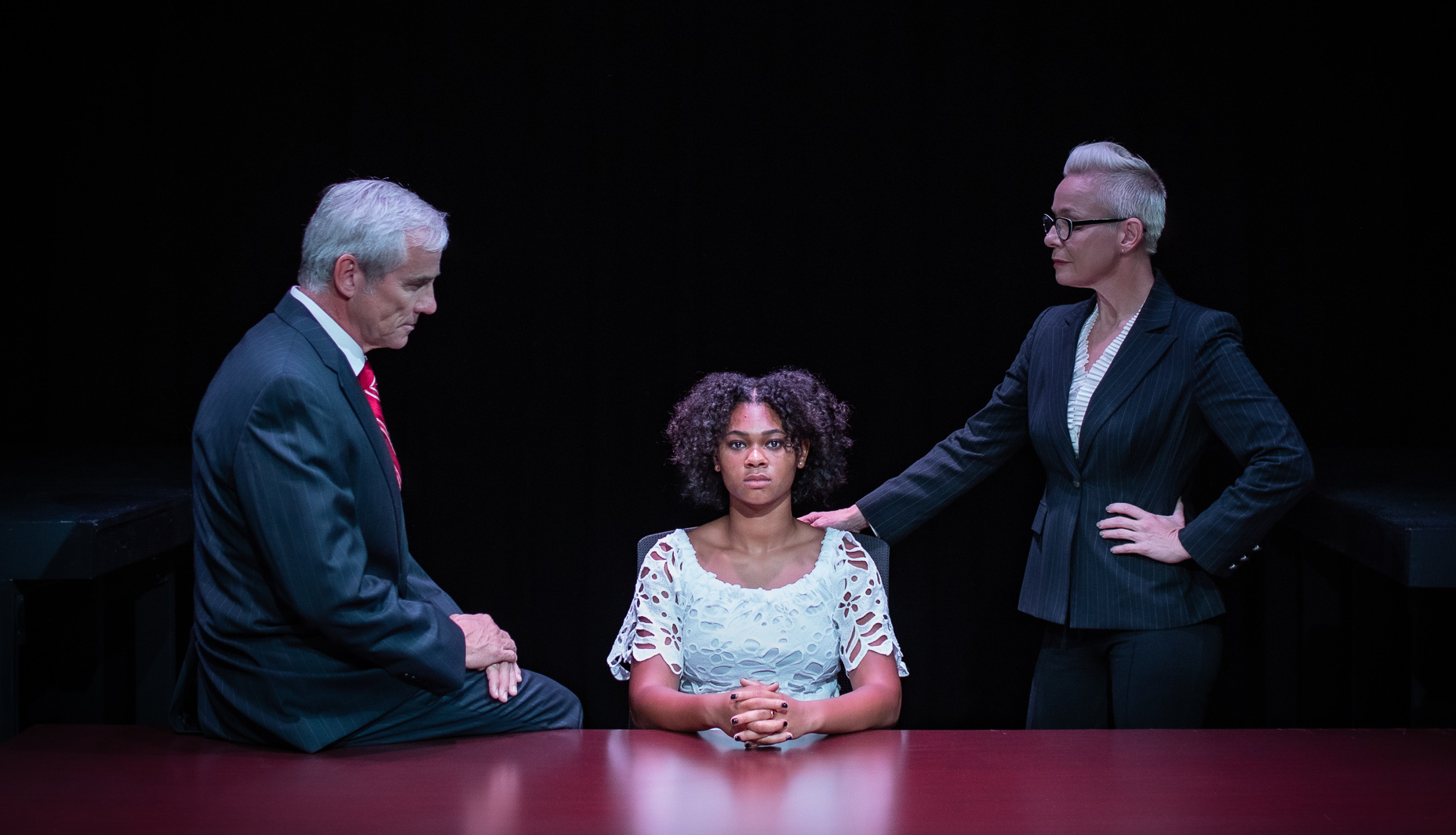In the year Elizabeth II celebrated her Platinum Jubilee, Elizabeth I is making a comeback. In the play The Virgin Trial, we see Elizabeth I before she became Queen. Mostly set in 1549, she is 15 years old, and fighting for her life. There is a historical parallel here: Elizabeth II, as a teenager, was also in deadly peril as the Nazis bombed London, including her home, Buckingham Palace.
In the play, which premiered in 2017 at the Stratford Festival in Ontario, Canada, the young Bess is being investigated for potentially treasonous activity. Her step-father Thomas Seymour is, to use a Texas description, too big for his britches. Even though he is Lord High Admiral, he has a bigger prize in sight: the crown of England. Was Bess complicit? That is what the Lord Protector and his assistant want to know, and this is where it gets really juicy.
I can’t reveal too much, but if you are in favour of torture, you will relish this production. This is definitely an adult-only theatre outing, which The Alchemy Theatre in Austin is staging until September 24.
Bess is played with studied aplomb, worthy of royalty, by Soliel Patterson. In peril of her life, Bess muses out loud “Can I create a version of Elizabeth Tudor that fits my agenda?” Here we can see the daughter takes after father, who was none other than King Henry VIII. No one created a version of himself as king more dramatically than Henry. He died a couple years before the play opens, so Bess’s brother Edward is now King. We don’t see him but we do get a conspiratorial insight into Bess’s relationship with her sister Mary, played by Adah Hagen. For all the sparks that fly between Bess and her interrogators, the actors find the most nuance in their sisterly interaction. Perfectly pitched by both actresses.
Bess has to face two interrogators. One, a slick guy in a suit, is the Lord Protector. Yanis Kalnins ratchets up the smarmy factor to its upper register is his portrayal of the man whose role is to protect the young King Edward. Anyone watching American politics will readily see a certain president (DT) in his attitude towards the truth: “The truth is immaterial once the public have their story,” he says.
His assistant Eleanor often steals the show. This is not just because the way the play is written, but due to the intense acting of Christine Glenn. Imagine a Nazi dominatrix let loose in 16th century England, and you will get some idea of how she delivers this role. Imagine further if Ginni Thomas had succeeded in overthrowing American democracy last year. It’s sort of a merger of the two. Facing a velociraptor might be an alternative some victims would prefer, as the attendants of young Bess discover while being are tortured for incriminating evidence. They are played with empathy by Michael Bonny Bassey and Ali Meier.
The figure around which all this negativity derives is Thom, the man who has dangerously flirted with his step-daughter Bess. Marty Soole adopts a persona of both a calculating courtier and a fool on LSD. The hippie aspect is enhanced by Soole’s long hair and dashing good looks. In the play, he gets Bess with child, even though he is married to Queen Katherine Parr, the widow of King Henry VIII. To make the family connexions even more complicated, Thom’s brother is the Lord Protector.
Naturally one must wonder if Elizabeth (the actual historical person) really was with child. It makes great stage-play, but it’s not true. I quote here from historian Suzannah Lipscomb, who is an expert on this period.
“On 11 June 1548, according to Thomas Parry, Katherine came across her husband and stepdaughter embracing in a room alone together, and Katherine reacted with anger: “they were all alone, he having her in his arms, wherefore the queen fell out” with Seymour and Elizabeth.” The very next day, Elizabeth left the household of Katherine and her husband.
“Throughout that summer,” Lipscomb writes, “Elizabeth was ill with migraines, jaundice, digestive problems, and irregular menstruation. About 60 years later, an urban legend started to circulate that Elizabeth had been pregnant during this time – but the evidence is laughably slender and easily refuted. It seems more likely that Elizabeth was stressed and traumatised by the separation from her stepmother and the sexual harassment by her stepfather.” While Seymour was certainly reckless, and clearly had marital ideas with regard to Elizabeth, there is no evidence of sexual abuse in the physical sense.
Despite the historical distortion on the pregnancy issue, the play follows the real historical events very closely. Nonetheless this is not a period play, as the costumes are modern, and we even see a cup of Starbucks coffee on the set. There are many rapid scene changes, heralded by flashing lights which can be a bit distracting. The Virgin Trial is well worth seeing here, in its Texas premiere.
Photo by Christopher Shea.
Tickets at: www.thealchemytheatre.org

